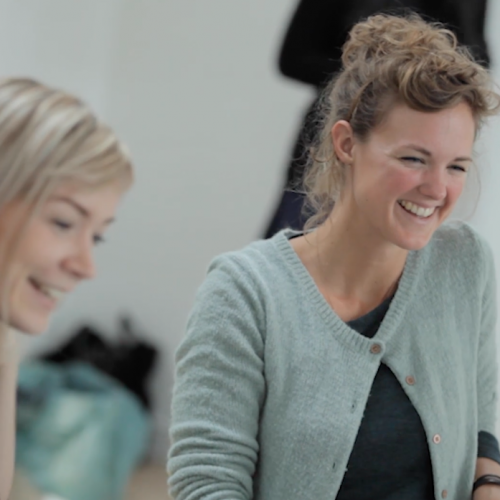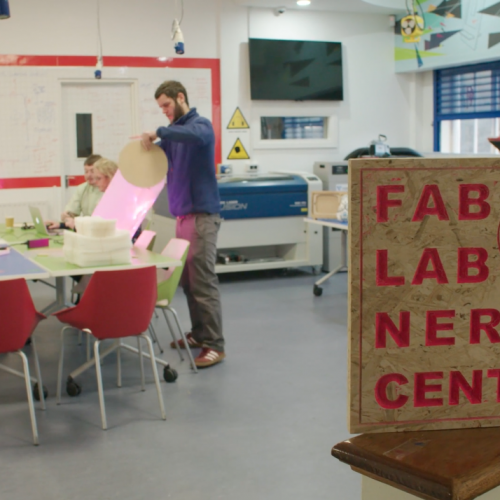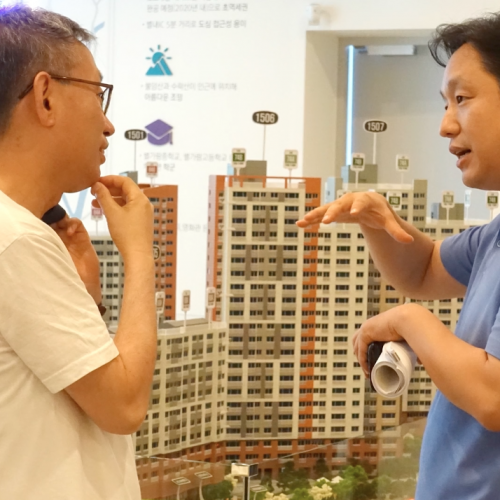Seoul Metropolitan Government
Mr. Wonsoon Park, the first social innovation Mayor in Asia, is now serving his third term as the Mayor of Seoul, the capital city of South Korea.
Bottom Line
Since his first charge of the Seoul City’s administration in 2011, he has brought in numerous social innovation policies and programs that mainly empower citizens and build collaborative governance to run the city. His primary focus aims to change the fundamental role of the public sector, from governing to facilitator and catalyst that encourage citizens to participate and co-design the city’s current and future shape. Already nearly ten years on his innovative administration, we could observe how the megacity like Seoul has been transforming: it has been becoming more citizen participatory, more sharing, more community based, more people-centered, more transparent, more interactive and more collaborative than past.
Why it matters?
Social innovator Mayor.
Seoul popularly named as a future city has gained its reputation on advanced technology and K-pop/K-drama. Besides, it is also known as the social innovation city centred around citizen power and the leadership of Mayor Wonsoon Park.
- Through the ’80s and ’90s, Mr. Park worked as the human right lawyer and found the People’s Solidarity for Participatory Democracy, the civil watchdog organisation that led movements against political and conglomerates corruption.
- Later he founded the Beautiful Foundation, a community foundation, the Beautiful Store, a social enterprise that recycles donated second-hand goods, and the Beautiful Coffee that sells fair-trading tea and coffee imported from underdeveloped nations.
- Just before being elected as the Mayor, Mr. Park started the Hope Institute, a social innovation think and do tank that conducts many social experiments bringing in broad collaboration between local authorities, public institutes, and ordinary citizens.
10 years of Social Innovation Administration
Throughout the three decades of his career, Mayor Park experienced the power of ordinary people and their innovative aspects that could sparkle and be nurtured when the government, the market, and the civil society work together. This belief is constantly instilled into the Seoul Metropolitan Government(SMG)’s administration in the last nine years.
- The citizen participatory budgeting, the creation of the Social Innovation Bureau within the SMG that identifies and supports hidden unusual innovators improving the city everyday, starting the Seoul Innovation Park where hosts social innovation players and encourage their collaboration to tackle the city’s complex issues, boosting community rebuilding programs and social economy actors, to name but a few.
- The clear subject through all of this work is how the SMG administration carefully and attentively listens to citizen’s voices, and helps them to create and develop their ideas working for the diverse groups of citizens. One of the SMG’s priority missions has become seeking appropriate partners and resources to citizens who have pioneering and down-to-earth ideas that could provide better solutions to their communities.
What’s happening?
- Seoul citizens have demonstrated people power through the Candlelight Revolution in 2016, which led to peaceful impeachment. This experience encourages Seoul citizens to become more confident in showing their opinions and participating in shaping the city’s current and future.
- The SMG runs the Social Innovation Bureau since 2011 and has been trying a lot of social experiments. Their positive impact inspires the South Korea central government to take the social innovation agenda and initiatives nationwide. Many pioneering programmes started by the SMG and Seoul citizens such as people-centred urban regeneration programmes, social innovation spaces, and citizen participatory social innovation programmes are now taking place nationally.
- Myriads of innovative activities and programmes are underway in the Seoul Innovation Park. It provides spaces, resources, and opportunities for social innovators to network.
Go deeper
- Wonsoon Park’s own description on the Seoul City’s social innovation work, Forging Ahead with Cross-Sector Innovations
- SMG’s early social innovation strategy – “Seoul City’s Social Innovation Strategy: New Models of Communication to Strengthen Citizen Engagement” New Frontiers in Social Innovation Research
Other South Korean social innovation state – Social Innovation and Social Transition in East Asia


